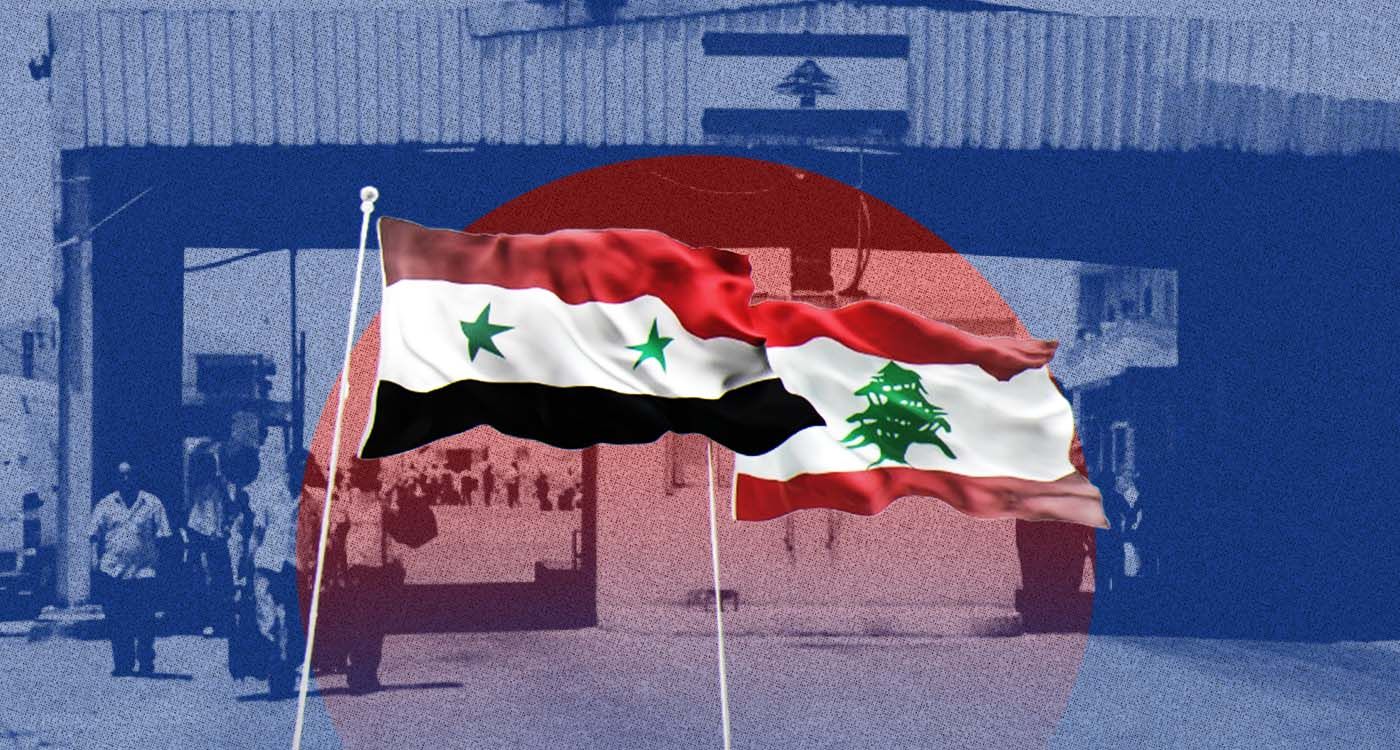
The Lebanon-Syria border is dotted with countless unofficial crossing points. Without natural barriers like rivers, mountains or a coastal divide, an effective demarcation of the border remains challenging. There are currently only six official crossings, three of which have been put out of operation by Israeli strikes.
Masnaa, Kaa, Daboussiyeh, Arida, Tall al-Kalakh and Matraba are the six official crossings with border posts. Inspections are carried out at these border posts to regulate the flow of people, vehicles and goods, and to prevent illegal trafficking along the 394-kilometer border between Lebanon and Syria.
Beqaa Valley cut off from Syria
As hostilities between Israel and Hezbollah spread beyond southern Lebanon, Israel struck all official land crossings connecting the Beqaa to Syria in October, rendering them inoperative. The Masnaa-Jdeidet Yabous crossing has been out of service since an Israeli strike on October 4. The attack cut off a key route for the movement of people and goods between Lebanon and Syria, as well as for transit to the wider Arab hinterland, leaving a crater four meters deep. Despite the damage, an adjacent street, just a few meters from the crossing, still allowed passage between the two sides of the border.
However, Israel targeted the area twice again in October, on both sides of the border, rendering the passage completely unusable.
No efforts have been made to repair the damaged section of the road. According to Ali Hamiye, the caretaker Minister of Public Works and Transport, information relayed to the prime minister's office suggests that Israel is firmly determined to prevent any attempt to reopen the crossing, even if it means using deadly force.
Kaa and Matraba
On October 24, Israel escalated its efforts to tighten its grip on Lebanon by targeting the second most significant official crossing between Lebanon and Syria, Kaa-Joussiyeh. Lebanese authorities had begun rehabilitation work at the border post, but traffic there dropped by 90%, with few people willing to use it following the first strike. This reluctance was further fueled by another Israeli attack on the site later that same month.
Meanwhile, in the early days of the war's expansion beyond South Lebanon, the Matraba border post, inaugurated in 2022, linking Hermel to Homs, was struck by an Israeli missile, rendering it immediately inoperative. As the crossing was primarily used for local traffic, its closure had a more limited effect on overall movement.
Northern Lebanon connected to Syria
Lebanon and Syria remain connected by three crossing points located in the North Lebanon governorate. So far, these border posts have remained outside of Israel's line of sight, and land traffic continues to flow normally.
The Abboudiyeh crossing is the most important of the three, linking the village of Abboudiyeh in the Akkar district to the village of Daboussiyeh in the Homs governorate. This border post serves as a vital corridor for transporting goods between northern Lebanon and central and northern Syria. It is especially important for the flow of food products, fuel and agricultural goods.
The Arida crossing links the village of Arida in Akkar to the Tartous governorate in Syria. It plays a crucial role in streamlining land transport between the port of Tripoli and Tartous in both directions. Since the conflict intensified, it has been frequently used to facilitate the movement of displaced persons from southern Lebanon to a shelter established by Syrian authorities in Homs.
On the other hand, the Tall Kalakh crossing, which connects Tall Kalakh in Syria to Wadi Khaled in Lebanon, holds limited significance for trade between the two countries. This route is primarily used by residents of Wadi Khaled to access essential goods from Syria.
The land border regiments
In an interview with sister media Houna Loubnan, retired Army Brigadier Samir al-Hajj stated that, despite the challenging geographical nature of the Lebanon-Syria border, the land border regiments within the army are fully capable of carrying out their border control mission. However, he emphasized that this ability is contingent on a clear political will. He also noted that the British initiative to build surveillance towers along the eastern border with Syria was not given the attention it deserved.




Comments